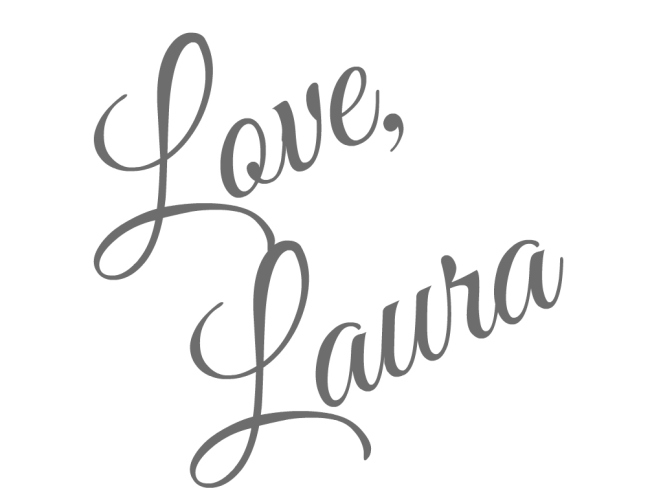Abstract/TL;DR: Imposter syndrome is a struggle experienced by high-achievers who doubt their abilities and fear being exposed as frauds. It is closely connected to high-functioning anxiety, where individuals appear to have it all together but deal with internal anxiety. Imposter syndrome can be exacerbated by external pressures and judgment, such as those found in certain church communities. Recognizing and addressing imposter syndrome and high-functioning anxiety is crucial for personal growth and well-being. Practicing self-compassion, seeking support, and challenging negative beliefs are important steps in overcoming these challenges. Journaling can be a helpful tool in the process.
As someone who constantly strives for perfection, admitting my feelings and shortcomings isn’t something that comes easily to me. However, I’ve made the decision to share my experiences because I believe they can potentially benefit others. Honesty and transparency are important to me, and I truly appreciate your open-mindedness as I share my struggles.
Imposter syndrome has been a constant struggle throughout my life. It’s that nagging feeling that convinces me I don’t deserve my accomplishments and that I’ve somehow fooled everyone into thinking I’m capable when, deep down, I feel like a fraud. It doesn’t matter how many achievements I’ve earned or positive feedback I receive; there’s always that voice in my head telling me that I’m not as intelligent, talented, or skilled as others perceive me to be. I find myself constantly comparing my abilities to those of others, believing that they possess some innate ability or knowledge that I lack.
Instead of feeling proud when praised for my work, I’m often overwhelmed by anxiety. I question whether I truly earned the recognition and worry that some flaw will be discovered, undermining my achievements. It always feels like there’s more I could and should be doing.
For instance, during the pandemic, I took on a new nursing position that was completely unfamiliar to everyone involved due to the unprecedented circumstances. Despite knowing I was a capable and intelligent nurse, the unlicensed and unqualified people I worked with constantly questioned my decisions. They would ask, “Who do you think you are?” or “Why do you think you can tell us what to do?” This was incredibly challenging and frustrating because, despite being qualified and having the Department of Health on my side, I already struggled with fearing being exposed as a fraud. Imposter syndrome certainly didn’t help matters.
While I generally have no issue with self-confidence in my daily life and can easily make decisions, being in a situation where my competence was constantly doubted intensified my fears and anxiety, turning it into a nightmare. Even though I knew I was qualified and had the support of many others, the persistent questioning made me doubt myself. Their relentless criticism fed into my feelings of being an imposter. It was undoubtedly a difficult time, but it also highlighted the importance of addressing these internal struggles, finding ways to build confidence, stand my ground, and overcome the grip of imposter syndrome.
Imposter syndrome is closely intertwined with something I recently discussed called high-functioning anxiety. It’s when you appear to have everything together on the surface but battle significant anxiety internally. I tend to set excessively high standards for myself and worry incessantly about making mistakes. It’s like living in a pressure cooker of feeling perpetually inadequate and fearing that despite my best efforts, people will perceive me as incompetent.
The link between imposter syndrome and high-functioning anxiety stems from the fear of being exposed as a fraudulent “imposter.” The anxiety that accompanies high-functioning anxiety amplifies these feelings of fraudulence and intensifies the fear of failure or being discovered as undeserving. That’s why many people with imposter syndrome seek validation and reassurance from others, even though they often struggle to believe the reassurances themselves. They fear that without external validation, others will finally see their “true” incompetence. (Sounds familiar to the concept of words of affirmation as a love language, doesn’t it?)
It’s a vicious cycle. Achievements are attributed to external factors rather than recognizing one’s own capabilities and hard work. This self-doubt undermines accomplishments and fosters the belief that one is not good enough. The anxiety and self-doubt stemming from high-functioning anxiety only exacerbate imposter syndrome, perpetuating feelings of inadequacy and a constant fear of failure.
Imposter syndrome becomes even more challenging when faced with hypercritical individuals who exploit it for their own gain. These people manipulate and harm you by exploiting your desire to do more, achieve perfection, and master your craft. Unfortunately, I’ve personally experienced this in my own life.
The church community I was once a part of played a significant role in contributing to and worsening my high-functioning anxiety and imposter syndrome. Although it was a place meant to provide support, acceptance, and spiritual growth, I often felt judged and inadequate within its confines. The constant pressure to conform to a specific mold of what a “good Christian” should be created an overwhelming sense of falling short. The emphasis on perfection, both in appearance and spirituality, intensified my feelings of not belonging and fueled the self-doubt that already plagued me. I could outwardly conform to their expectations, but deep down, I questioned whether I genuinely believed what they were teaching. The doubt only amplified my feelings of being an imposter, and I developed a fear of exposure. It seemed as though certain people wanted me to fail, almost as if they were eagerly waiting to hold me accountable for any misstep. Breaking free from that particular church community was initially challenging, but it ultimately provided the freedom to rebuild my confidence and rediscover my true identity.
You have imposter syndrome, yet you always seem so self-confident?! That’s because I am…
I’ve realized that I can totally experience imposter syndrome while still having moments of feeling really confident in myself. It’s like there are these two sides of me that sometimes don’t agree.
There are things that I know I’m good at, during those times, I feel super confident, like I can conquer the world. But then, there are those situations that I’m not 100% sure about, and out of nowhere, this little voice inside my head starts asking, “Are you sure you’re not just lucky? What if you fail? What if you really don’t know what you are doing? What others find out you’re not that amazing?” Imposter syndrome starts creeping in.
Despite the imposter syndrome, I can still have confidence in myself, especially when I’m taking on challenges or doing things I know I’m good at. It’s just that imposter syndrome can sneak in and mess with my head when I am not fully confident, making me question myself even when everything seems to be going fine.
I’m starting to realize that it’s okay to have these mixed feelings. Lots of people go through it – feeling both confident and unsure at the same time. I’m learning to handle this by understanding that it’s a natural part of being human. And by working on this understanding, I can hopefully find a better balance between feeling confident and dealing with imposter syndrome.
This journey of overcoming imposter syndrome is ongoing, and I’m taking small steps every day to combat these feelings of inadequacy. Surrounding myself with supportive people and practicing self-compassion are crucial aspects of my efforts. It may be a long road ahead, but I’m determined to break free from the grip of imposter syndrome and embrace my true worth. Learning to celebrate my achievements and disregarding the voice of imposter syndrome in the back of my mind is no easy task, but with perseverance, it is possible.
Why am I sharing all of this with you? If you also struggle with imposter syndrome, I want to help you find confidence and feel less alone. Practicing self-compassion and reminding yourself of your worth are important steps. Seeking support from trusted individuals can provide guidance and validation in navigating these complex experiences. Personally, I’ve found journaling to be instrumental in my journey. With time, reflection, and support, a more balanced perspective can develop.
If you would like to know more about my struggle with high-functioning anxiety you can read more by clicking HERE.
Check out my recent post about how I have been finding faith following my choice to leave fundamentalism by clicking HERE.
If you still want to read more of what I have to say, check out my post about discovering that I am covered by grace and I am not desperately wicked by clicking HERE
Disclaimer: The information provided is based on general knowledge and personal experience and should not be considered as a substitute for professional medical advice or treatment. While I am a registered nurse, I am not your personal healthcare provider. It is advisable for you to consult with your own designated healthcare professional to determine the best course of action for your specific situation for personalized guidance and recommendations tailored to your specific needs.
Resources
- The Impostor Phenomenon: Overcoming the Fear that Haunt Your Success by Pauline Rose Clance and Suzanne Imes
- The Secret Thoughts of Successful Women by Valerie Young
- The Gifts of Imperfection by Brené Brown
- Educated: A Memoir by Tara Westover
- The Imposter Cure: How to Stop Feeling Like a Fraud and Escape the Mind-Trap of Imposter Syndrome by James Hibberd
- The Confidence Code: The Science of Self-Assurance – What Women Should Know by Katty Kay and Claire Shipman
- The Mindful Path to Self-Compassion: Freeing Yourself from Negative Thoughts and Emotions by Christopher Germer and Kristin Neff
- Daring Greatly: How the Courage to Be Vulnerable Transforms the Way We Live, Love, Parent, and Lead by Brené Brown







First off, thank you for your service! You and your coworkers in the medical field are absolute heroes, and I can never praise you highly enough for working through the pandemic.
I think that high functioning anxiety is far more common than we realize. In this day and age of social media, everybody is trying to put their best foot forward and convince the world that we are all living our best lives. Most people aren’t willing to talk about their hopes, fears and concerns. I would rather just post the photos from Disney World and talk about how awesome their life is.
LikeLike
I believe you’re right that high-functioning anxiety might be more common than we realize. I personally experienced years of struggle without understanding my condition, (and it even affected me while I was at Disney World! 😉) Sharing our vulnerabilities can be challenging, but like anything significant, the more we do it, the more natural it becomes. It’s still a work in progress for me!
I agree, nurses are amazing!❤️ Thank you for taking the time to read and comment!
LikeLiked by 1 person